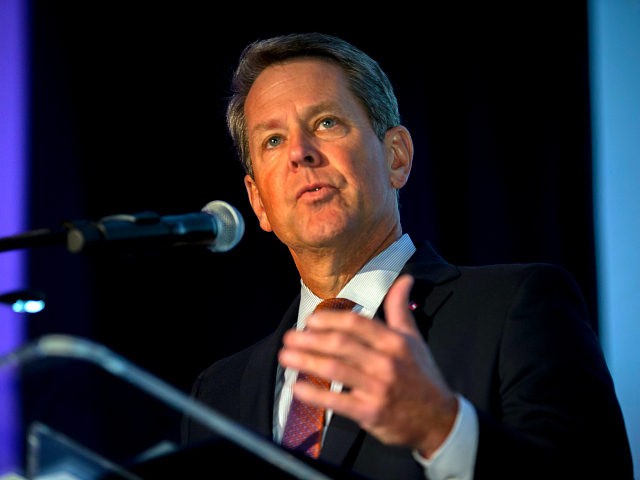CLAIM: President Donald Trump is “wrong” that Georgia made checking signatures on absentee ballots “impossible.”
VERDICT: MOSTLY FALSE. Georgia’s consent decree made checking signatures so difficult as to be practically impossible.
Georgia is undertaking a hand recount of votes in the recent presidential election, which was narrowly won in the state by former Vice President Joe Biden. But the recount is not checking signatures on absentee ballots, the Trump campaign says.
President Donald Trump and his team have objected, because checking signatures is a key safeguard against fraud.
On Saturday, Trump tweeted that Georgia Gov. Brian Kemp (R) had made signature verification impossible for absentee ballots in a March consent decree:
The Consent Decree signed by the Georgia Secretary of State, with the approval of Governor @BrianKempGA, at the urging of @staceyabrams, makes it impossible to check & match signatures on ballots and envelopes, etc. They knew they were going to cheat. Must expose real signatures!
— Donald J. Trump (@realDonaldTrump) November 14, 2020
Twitter labeled that as “disputed,” and the Associated Press did a fact check.
The AP said that Trump was “wrong,” adding: “There is nothing in the consent decree that prevents Georgia election clerks from scrutinizing signatures.”
Curiously, however, the AP did not link to the actual consent decree, which is hard to find.
It is somewhat easier to find the underlying state law, signed by Gov. Kemp in April 2019, which relaxes ballot signature requirements. As National Public Radio noted, Kemp was under pressure to fix some of the problems Democrats blamed for his victory in the 2018 gubernatorial race (which Georgia Democrat Stacey Abrams never properly conceded). Democrats claimed that Kemp benefited from racial “voter suppression.” So Kemp acceded to some of their demands in the new law.
As NPR noted, the law “blocks county election officials from rejecting absentee ballots because of mismatched signatures.” An absentee voter with a mismatched signature is mailed a provisional ballot and given the opportunity to “cure” the mismatch. The voter has to do so with an affidavit, and with proper ID, before a deadline, to ensure the ballot will count.
The March 2020 consent decree is posted on the website of the Perkins Coie law firm. Attorney Marc Elias, the Democratic lawyer who hired Fusion GPS to produce the phony “Russia dossier” in the 2016 election, triggering the entire “Russia collusion” hoax, is listed as the lead attorney for the plaintiffs, who include several Democratic political organizations.
The consent decree describes a new procedure for reviewing signatures. When there is a mismatch, an election official must consult with two other officials. Then they have to vote. The ballot can only be rejected if a majority agrees that there is a mismatch. Then, all of the officials must write their names on the rejected envelope before starting the “cure” process.
The practical effect of that new requirement is to make signature matching impossible. With hundreds of thousands of absentee ballots to be counted, it is difficult to pull additional officials off their assignments to examine a signature. And with a rejection tarnished as racist “voter suppression,” no official is going to want his or her name listed on the envelope.
So while “nothing in the consent decree” explicitly prevents a signature check, the process is so onerous — and, for the officials, personally risky — that there is almost no chance it will happen widely. Trump is closer to the truth than the AP.
Georgia’s embattled Secretary of State, Brad Raffensperger, claimed that the signature matching process was “strengthened” this year. That is because officials received extra training — in rules that make checking ballot signatures almost impossible.
Joel B. Pollak is Senior Editor-at-Large at Breitbart News and the host of Breitbart News Sunday on Sirius XM Patriot on Sunday evenings from 7 p.m. to 10 p.m. ET (4 p.m. to 7 p.m. PT). His newest e-book is The Trumpian Virtues: The Lessons and Legacy of Donald Trump’s Presidency. His recent book, RED NOVEMBER, tells the story of the 2020 Democratic presidential primary from a conservative perspective. He is a winner of the 2018 Robert Novak Journalism Alumni Fellowship. Follow him on Twitter at @joelpollak.

COMMENTS
Please let us know if you're having issues with commenting.